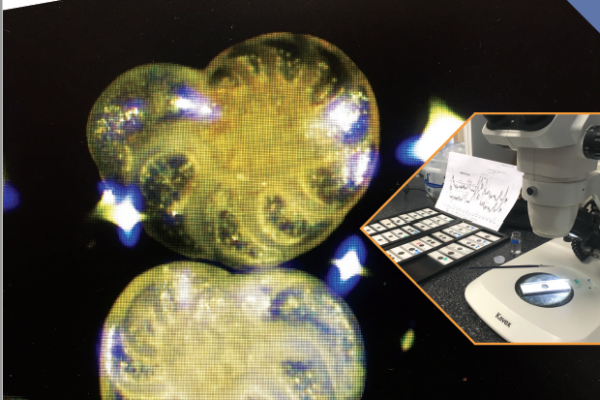Category: News

Annual Review 2023
Read More
Project Title: Constructing the Poetic Gaze: A.B. Ovenstone (1851- 1935) and The Amateur Photographer
The aim of this research was to build a contextual understanding around the body of work created by the, as yet undiscovered, Victorian amateur photographer Andrew Begbie Ovenstone (1851-1935). Whilst there is growing awareness of the very earliest Scottish photographers, the role played by significant amateurs in the late Victorian period has received little notice. Magazine, journal and newspaper articles provided the main source material for the research.
In the course of my research, I identified a number of elements which contributed to the conventional ‘gaze’ of the late Victorian amateur photographer in Scotland: the cultural impact of the industrialisation of Glasgow at the time, the attitude of Empire including ‘self-fashioning’, ‘typology’ and the identification of ‘otherness’, the aesthetic values endorsed by the network of painters and photographers with whom Ovenstone was associated, and the role and influence of the photographic magazines of the day. One of my main concerns was to establish the extent to which Ovenstone’s photographs conformed to convention. I found that the Victorian ‘attitude of Empire’, often reinforced by the magazines of the day has to be acknowledged as a determining agent in the development of the Victorian ‘gaze’.
Alongside this conformity, however, the amateur tradition in British photography embraced the notion of experiment and invention and Ovenstone’s photographs are replete with all kinds of formal experiment as well as moments of ‘punctum’. By applying semiotic cultural theory, especially as developed by Roland Barthes and Jacques Rancière, I was able to problematise the dominant historiographic readings of nineteenth century Scottish photography. Whilst acknowledging the generally accepted ‘social documentary’ characteristics of the Scottish photographic tradition, I have suggested that amateur photographers, like Ovenstone, because they were less motivated by a moral/social agenda, offer us a more nuanced perspective on late Victorian society.

Awarded: Research Incentive Grant
Field: Visual Culture & Theory
University: University of the Highlands and Islands